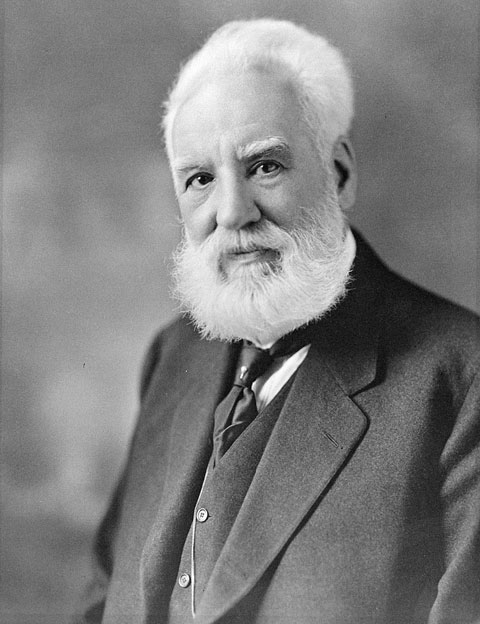Alexander Graham Bell, a pioneer in communication technology, was born in Edinburgh, Scotland, on March 3, 1847. His groundbreaking inventions, including the telephone, revolutionized global communication, profoundly impacting the way we connect and communicate today.
Alexander Graham Bell’s family showed deep interest in speech and sound investigations during his early years. His father, Alexander Melville Bell, provided him with home-based education as he grew older. Melville maintained a prominent position in phonetics while his grandfather, Alexander Bell, practiced as an elocutionist. Bell became fascinated with communication and acoustics growing up, eventually shaping his innovative work. Bell later became a student at Edinburgh’s Royal High School. At fifteen, he dropped out of school and spent a year living with his grandfather in London. Bell began working as a “pupil-teacher” of music and elocution at Weston House Academy in Elgin, Moray, in 1864.
Driven by his scientific aptitude and curiosity, Bell attended the University of Edinburgh and later University College London, but did not graduate. In the 1870s, he made a significant move to Canada and then the US, where he continued his studies in speech and sound. It was during this time that Bell attempted to use a single line to transmit multiple telegraph signals in 1872. His collaboration with Thomas Watson, his assistant, led to the creation of a telephone prototype by 1875, resulting in a patent on March 7, 1876. The Bell Telephone Company, founded in 1877, would later evolve into AT&T. In 1915, Bell made history by placing the first official transcontinental call, reaching out to Watson.
Alexander Graham Bell’s contributions extended far beyond the realm of telecommunications. He made significant advancements in the fields of hydrofoil and aviation, demonstrating his diverse interests and impact on science and technology. Bell also played a pivotal role in revolutionizing education for deaf people. In 1888, he co-founded the National Geographic Society, further cementing his legacy as a pioneer in multiple fields.

